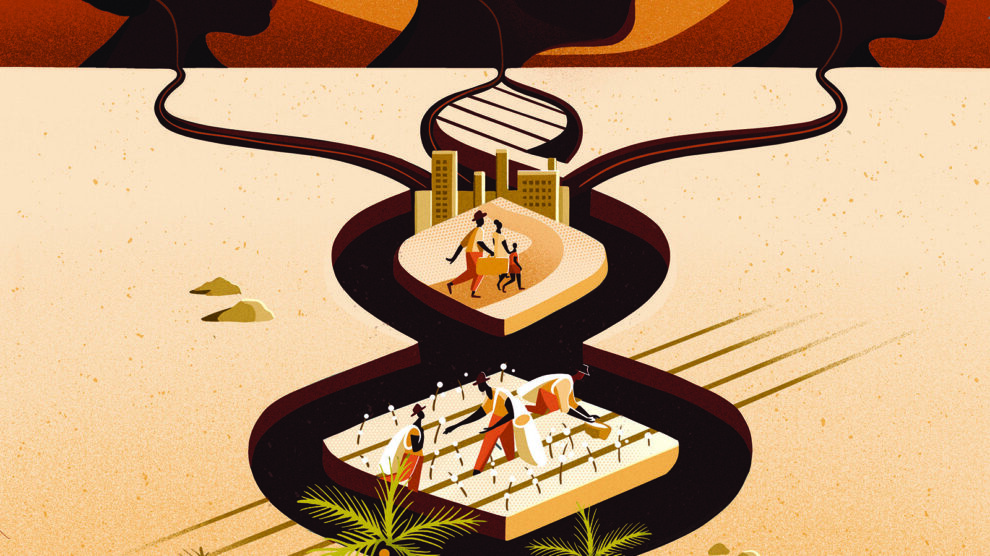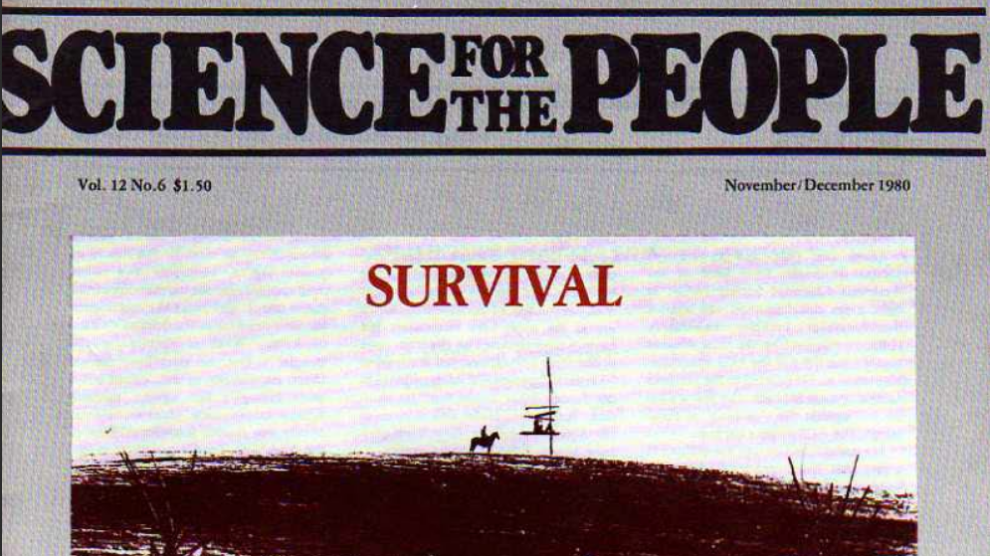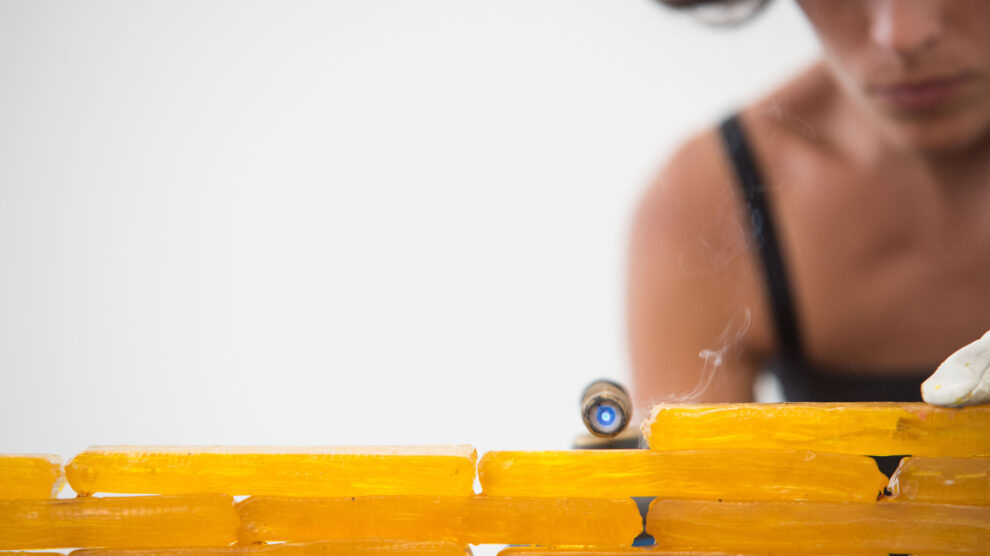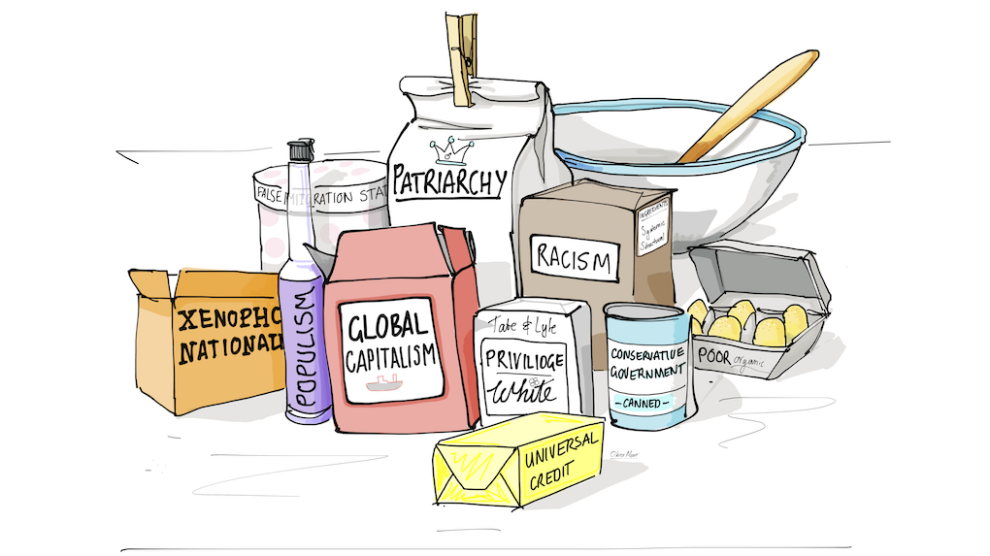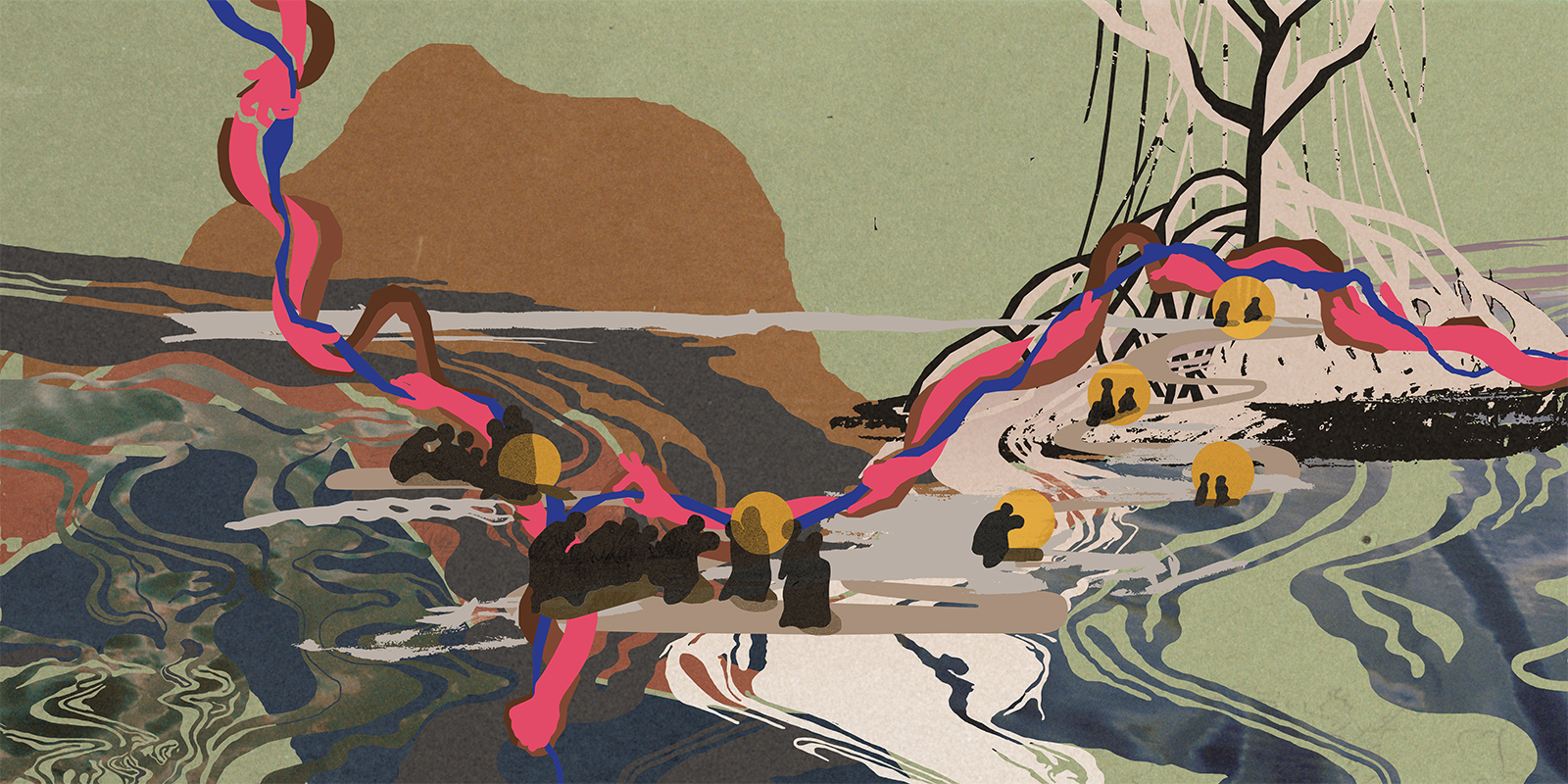
Poetry by Ojo Taiye
Volume 25, no. 2, Bleeding Earth
OGONI ONE NAIRA SURVIVAL FUND
Why do I keep talking about memories?
Summer falls, and I peel open the scab
I’ve chosen not to open until now.
Oil kills everything—the land, the mangrove,
the water bodies and the creek.
Along the grease-stained bank, a boy with
a fishnet stands all day waiting.
I know the problem of this poem—
there was once a thriving swampland.
Possibly nice. That perfect triangle of home
familiar with light. Do I need to say there
were waterways; a trader to my left and
a farmer to my right. Canoes and boats
and dreams wading ahead—maybe halfway
through the waters—in quest of wonder.
Certainly, I remember, through the whiff of
my mind. A child, wet and oaring—a land full
of spring, kernels and salt. Once I can’t forget
one afternoon some years ago, I imagine my
mother disappearing into the forest. Her silhouette
in the wake of another crossfire; in the strike
of another man’s wrath. Consider the fields
between forgiveness and mercy, between
silence and a daughter’s desire. I mean to say
I dream of my father’s fishpond. My cousin
several villages away says, she remembers the
flood, everything that arrived in the aftermath
of the oil boom. Speak of all our sickness;
the fading shadows scattered across my grand
father’s backyard. I don’t think it mattered but
then remediation’s no number of years. The oil
streaks spidering and pooling around the ankles
of my birthright. Why do you think for so long I had
to live like this—an ecological refugee. Because
home is a place where I have been severed from
myself. By that I mean home will always be in
pieces, a torn language endlessly crossing and
re-crossing my life, a river of song that ferries
me to nowhere but here—
ENVIRONMENTAL AUDIT
after Jeremy Karn
There are tales buried on the tongues
of women in Ogoniland. No matter how
many names we give to the devastation,
it remains a stubborn constant.
This poem will only be for my sisters,
Amen! Some night, a nervous fisherman
will walk on the seashore, forlorn, thinking
about dead periwinkles and a waterfront
coated with oil slicks. Sometimes, memories,
too, can be the progeny of blisters and rashes.
It will come only with shortness of breath and
itchy eyes. There is a collection of weld
defect the oilman refuses to address. This
land holds less fish and more spills inside
its creeks than all the food relief delivered by
night. In my uncle’s house, there are women
too tired to sob, old enough to lose their babies
to stillbirth; so, when their children die young,
they count their fingers to hide the wounds left
in their heart. I mean to say, every family, here,
has a grave where someone is buried. This
land has become another photograph of reckoning.
And because the gas flares ate my mother’s farm
land, she sometimes plants flowers to hold
the screams growing in the earth’s womb. How
long do we have to keep running? In 2008, my father
and I ran, left our fishpond that grew into a smog;
three times I saw mangroves covered with black
mud and canoes burnt to ashes. I have spent half
of my life surviving ecological war—mourned too
long for my bloody knuckles—for this stench that
keeps growing in my nostril—and for this tribe
that remains a dirty print in my country’s garb.
SCOPING MAP
after Ogoniland
Can I still picture home, in the wreckage of things?
The dying of fish and everything aquatic. That
water is oil, that another name for nostalgia is time.
Can I still teach myself how to forget? The story
is that the befouled river still remains. My mother,
who is now blind, still trades. Biscuits, not periwinkles.
It’s early summer and it’s hard to tell what is sky from
what is gas flare. Into the horizon, the air is toxic, and
my only surviving uncle keeps licking franol to relieve
his lung. How long was it? Does the world even read
our ugly stories, does my country even know we exist?
I have forgotten we are so minor, not even close to
redemption, children keeping warm in oily waters,
a pillow for their trauma. Distant but soft and cozy.
Present but siloed. This land rid of all her innocence.
This land full of dirt and broken pipes. Still I dream.
Still I am curious. Still I want to say: O glorious creeks,
born into a cold marshland. There is no love greater
than empathy. As fisherboys, we were brought into
the creek, and told that water is life, and as such we
should learn to keep it clean.
UNDER THE BRIDGE OF HOPE
I keep checking the dark cloud to see if it’s going to rain again or if the shower that cleared the dusty air was just a dream. But it hasn’t rained in two years. Still I am willing to swim in cliché every time I tell you that reindeer as a species are already dying—because home is a list of things I keep from my only son. And this almost feels like betrayal—even when I am deeply aware of the pangs hunger takes up and I think about the little children—and how they forget to breathe—and how I know that drought still lives here. I don’t sleep, oh maami, the game is lost—ash falls from the sky like sinister confetti and I struggle to separate causation from correlation, our guilt from this, from what the earth has become, how every flash flood is a room for more wreckage. Nevertheless, here we are, sunrise to sunrise, holding our breath in the house of hope. This city is strewn with footprints of nomads looking for souls of trees. What is left of the cyclone that holds this city by its gut? Tonight is another night to look at the tongue of sandstorms and its nostalgia for ruin.


